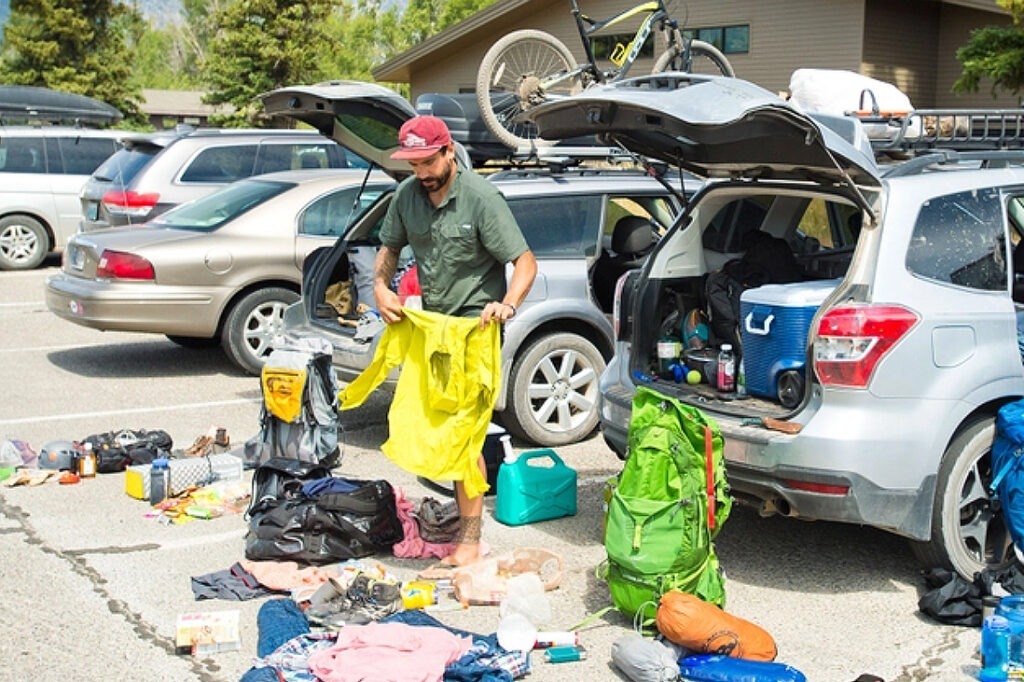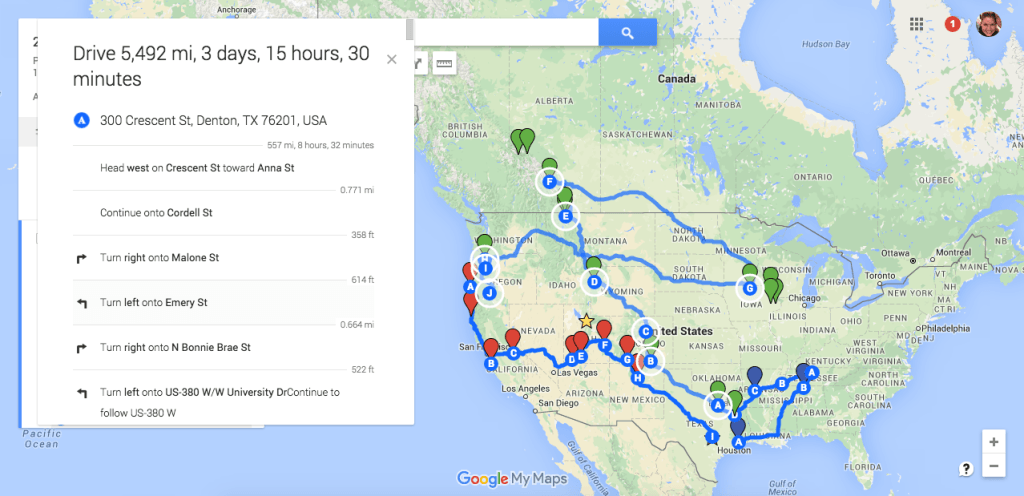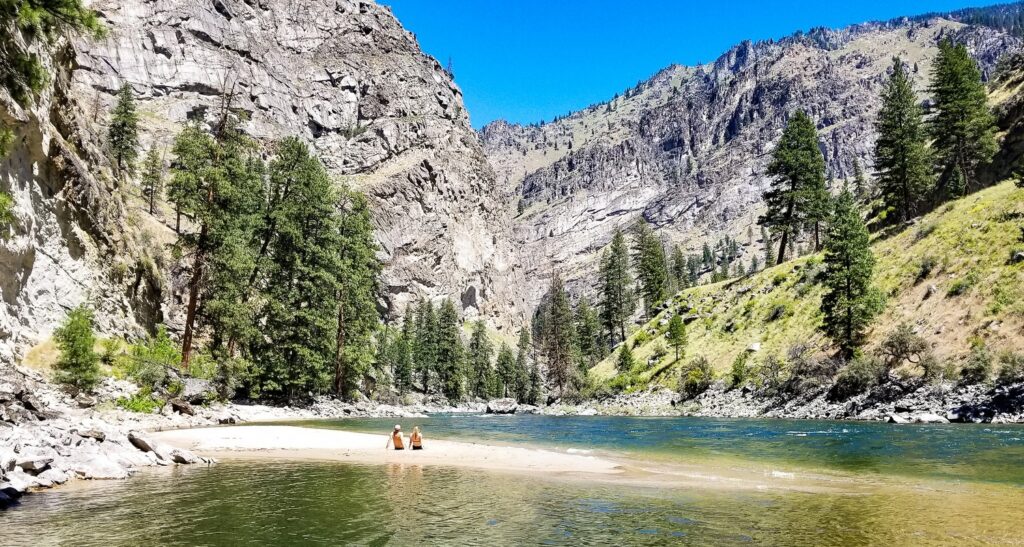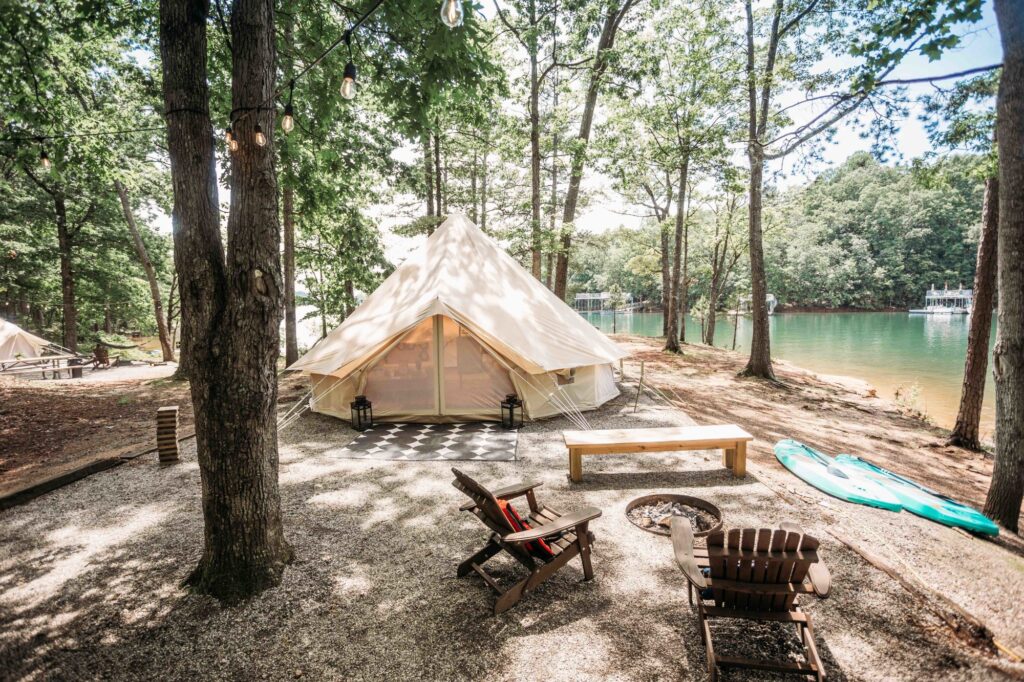Guides for planning and executing road trips, including advice on packing, route planning, and finding interesting stops along the way.
Road trips can be an exciting and adventurous way to explore new places and make memories. However, proper planning and preparation are crucial to make the most out of your road trip experience. Here are some tips for planning and executing a successful road trip:

Planning & Packing
Planning a road trip can be an exciting experience, but it is also important to be well prepared in order to ensure that the trip goes smoothly. There are several steps that should be taken in order to plan a successful road trip. Firstly, it is important to consider the budget for the trip. This includes determining the cost of gas, food, and accommodations along the way, as well as any admission fees for attractions. Once the budget has been established, the next step is to choose a destination and plan the route. This involves determining the distance to be traveled and estimating the amount of time it will take to reach the destination. It is also important to consider the road conditions along the way and to plan for any necessary stops, such as for fuel or food.
In terms of packing, it is important to pack carefully and efficiently. This includes bringing essential items such as a GPS, a map, and a first aid kit, as well as more personal items like clothing and toiletries. When it comes to food, it is a good idea to pack a cooler with perishable items and non-perishable snacks. Additionally, it is important to bring a portable charger for electronic devices, such as phones and tablets, in order to stay connected and entertained during the trip.

One of the key aspects of planning a road trip is finding interesting stops along the way. This can include visiting national parks, scenic overlooks, historical sites, and unique restaurants or shops. It is important to research these potential stops beforehand in order to determine the best ones to visit and to plan the route accordingly. It is also a good idea to make a list of potential stops in advance and to carry it with you on the trip in case you need to make any changes to your itinerary. With the right preparation, planning a road trip can be a fun and memorable experience.

Route Planning
When planning a road trip, the second step is to determine the route you will take. This involves considering factors such as the starting and ending points of your trip, the amount of time you have available, and any notable landmarks or attractions you may want to visit along the way. To help plan your route, you can use online mapping tools, such as Google Maps, Waze or Roadtrippers to calculate the distance, estimated travel time, and identify potential detours or road closures. Additionally, you may also want to research popular stops along the way, such as scenic viewpoints, historic sites, or unique attractions. This will help you to create an itinerary that is both efficient and enjoyable, ensuring that you make the most of your road trip experience. Make sure to take into account any potential road closures, weather conditions, and the availability of fuel and food along the way.
There are several tools that can be used to make route planning easier and more efficient:
GPS Devices and Navigation Apps – A GPS device or navigation app is a must-have for any road trip. They can help you plan a route, avoid traffic, and find the quickest and most scenic route to your destination.
Map Apps and Websites – Map apps and websites like Google Maps, Apple Maps, or MapQuest can help you plan your route, estimate travel time, and get directions to your destination.
Road Trip Planner Apps and Websites – There are specialized road trip planner apps and websites that can help you plan your route, find interesting stops along the way, and even book accommodations and make restaurant reservations. Some popular options include Roadtrippers, TripAdvisor, and Touring Plans.
Traffic and Road Condition Websites – Traffic and road condition websites like Waze, INRIX, and TomTom can give you real-time updates on traffic, road closures, and road conditions to help you plan your route around potential delays.
Fuel Cost Calculators – Fuel cost calculators like GasBuddy and Fuel Economy can help you estimate fuel costs and find the cheapest gas prices along your route, making it easier to budget for your road trip.

Finding Interesting Stops
Finding interesting stops during a road trip can be just as important as the destination itself. A well-planned road trip is not only about reaching your final destination but also about experiencing new and exciting things along the way. There are several tools and methods you can use to make sure you have a memorable and enjoyable journey.
One way to find interesting stops is through research and preparation. Before you hit the road, take some time to research popular attractions, local events, and hidden gems in the areas you will be traveling through. You can use travel guidebooks, websites, and blogs to gather information about the best places to visit and things to see. You can also ask for recommendations from friends and family who have traveled the same route or ask the locals when you arrive at your destination.
Another tool you can use to find interesting stops is a navigation system or a mapping app. These tools not only provide you with turn-by-turn directions but also highlight points of interest, such as historical landmarks, scenic routes, and rest areas, along your route. Some navigation systems and apps even allow you to add custom points of interest and customize your route based on your interests.
Don’t be afraid to take detours and go off the beaten path. Sometimes the most interesting and unexpected experiences happen when you let go of your itinerary and allow yourself to be spontaneous. Drive down back roads, stop at small towns, and take the time to explore. You never know what you might discover along the way.
Finding interesting stops during a road trip can be a fun and exciting part of your journey. Whether you research, use technology, or follow your instincts, the key is to stay open-minded and be ready for adventure. By doing so, you can create a road trip that is filled with memorable experiences and unforgettable sights.
There are several tools and internet resources available to help with finding interesting stops during a road trip. Some popular options include:
Google Maps: This mapping service allows you to search for attractions and points of interest along your route and also provides directions, traffic updates, and estimated travel time.
TripAdvisor: This travel website is a great resource for finding popular attractions, scenic drives, and unique experiences. You can search for things to do based on your location, budget, and interests.
Roadtrippers: This online tool is specifically designed for planning road trips. It allows you to search for and map out points of interest, accommodations, and scenic routes along your trip.
National Park Service: If you’re planning a trip that includes stops at national parks, the National Park Service website is a valuable resource. You can find information about park facilities, trail maps, and activities, as well as tips for traveling in the parks.
Local tourism boards: Many cities and regions have their own tourism boards with information about local attractions and events. Check their websites or visit their offices for recommendations and brochures.
Here are some resources where you can find some hot spots:
Roadtrippers – a travel planning website and app that helps you discover interesting places and hidden gems along your road trip route.
The Blonde Abroad – a travel blog that features amazing road trip itineraries, tips, and recommendations for destinations all around the world.
The Broke Backpacker – a budget-friendly travel blog that focuses on adventure travel, including road trips and outdoor activities.
Atlas Obscura – an online resource for discovering unique and off-beat attractions and destinations around the world.
Instagram – a social media platform that can be used to search for road trip hashtags and find inspiration from other travelers and influencers who have taken similar trips.
Pinterest – another social media platform that allows you to search for road trip ideas and save interesting travel destinations and activities for later reference.
Lonely Planet – a travel guidebook publisher that also has an extensive website with travel articles, recommendations, and trip itineraries.
RV Trip Wizard – a website and app specifically designed for RV road trips, helping you plan your route, find RV-friendly destinations, and manage your trip logistics.

Accommodation
Accommodation is an important aspect of road trip planning and execution, as it can significantly impact the overall experience. Here’s a guide to help you with booking and researching accommodations while on the road:
Determine your budget: Before you start looking for accommodations, decide on a budget that you can afford. This will help you narrow down your options and choose the right place to stay.
Decide on the type of accommodation: Consider the type of accommodation that best suits your needs, such as a hotel, motel, bed and breakfast, or camping site. Each option has its own pros and cons, so choose the one that fits your budget, travel style, and preferences.
Research online: Use online travel agencies, hotel websites, and travel forums to compare prices and read reviews from other travelers. This will help you make an informed decision about where to stay and what to expect.
Book in advance: Booking in advance is a good way to ensure that you get the best rates and availability. It is especially important to book ahead during peak travel season when accommodations are in high demand.
Use Accommodation Apps: There are many travel apps that offer great deals on accommodations, such as Booking.com, Airbnb, and Hotels.com. Download them on your phone and keep them handy while you’re on the road.
Social Media: Follow travel bloggers, influencers, and social media accounts on platforms such as Instagram, Twitter, and Facebook. These accounts often share their experiences, recommendations, and tips for finding the best accommodations.
Ask for recommendations: Ask friends, family, and fellow travelers for recommendations and advice on where to stay. Word of mouth is a great way to find hidden gems that you may not have otherwise discovered.
In conclusion, planning and executing road trips with the right accommodation can make or break the overall experience. With the help of these tips, you can find the best place to stay and make the most of your road trip.

Budgeting
A road trip is an exciting and adventurous way to travel, but it’s important to stay on budget to ensure a stress-free and enjoyable trip. Here’s a guide on how to budget a road trip and stick to it:
Determine the budget: The first step in budgeting a road trip is to determine the total amount of money you’re willing to spend. Consider factors such as transportation costs, food and drink expenses, and accommodation fees. You should also budget for unexpected expenses, such as car repairs or medical emergencies.
Make a list of expenses: Once you have a total budget in mind, make a list of all the expenses you’ll need to cover, including gas, food, accommodation, entertainment, and any other miscellaneous expenses. This will help you keep track of your spending and stay within your budget.
Choose affordable accommodation: Accommodation can take up a large portion of your budget, so it’s important to choose affordable options. Consider camping, couch surfing, or booking through a discount website. Research different options ahead of time to compare prices and find the best deal.
Plan meals and snacks in advance: Eating out for every meal can add up quickly, so consider bringing non-perishable food items and cooking your own meals. You can also make a list of affordable and healthy snack options to have on hand for when you’re on the go.
Research free activities: There are many free or low-cost activities you can enjoy on a road trip, such as hiking, visiting museums, or exploring state parks. Do some research ahead of time to find fun and budget-friendly activities in the areas you’ll be visiting.
Track your spending: It’s important to track your spending throughout your road trip to ensure you’re sticking to your budget. Keep receipts and use a budgeting app to help you keep track of your expenses.
Resources for budgeting a road trip:
- Budgeting apps such as Mint or Personal Capital
- GasBuddy for finding the cheapest gas prices
- Groupon for discounts on activities and attractions
- Travel forums such as TripAdvisor or Lonely Planet for budget-friendly travel tips and advice.



Leave a Reply